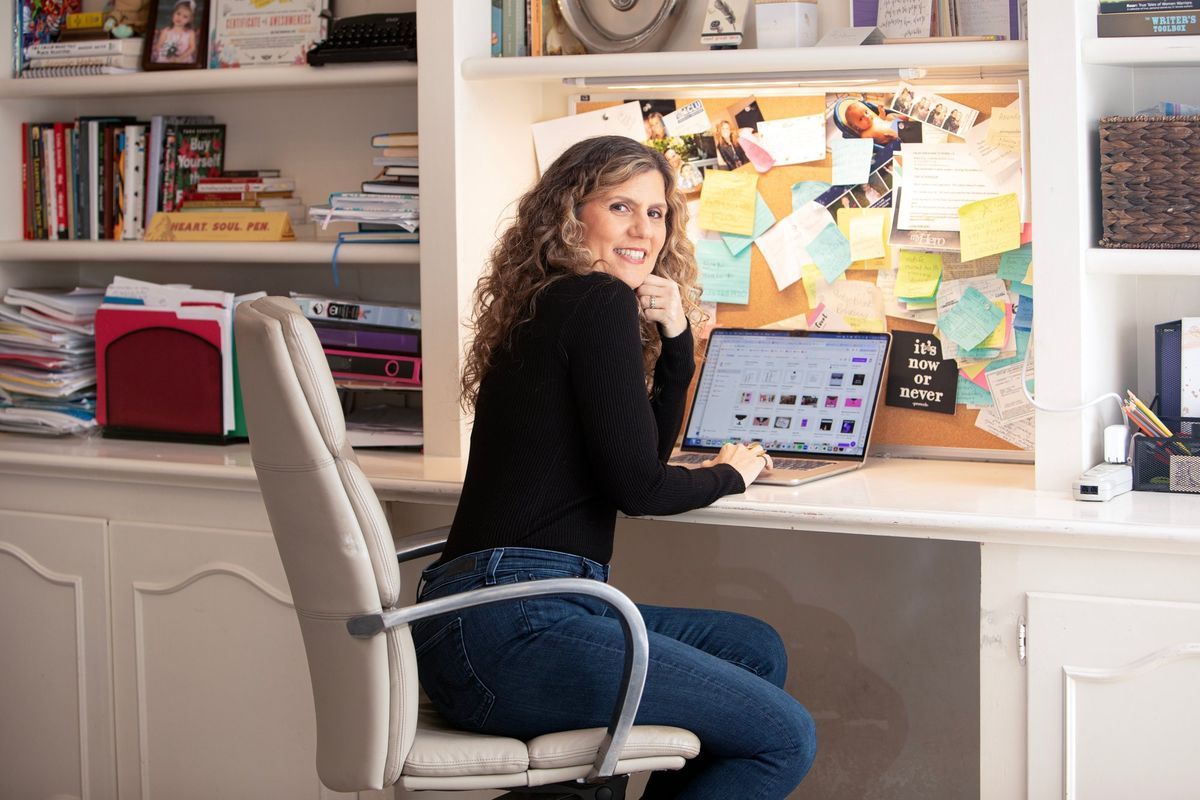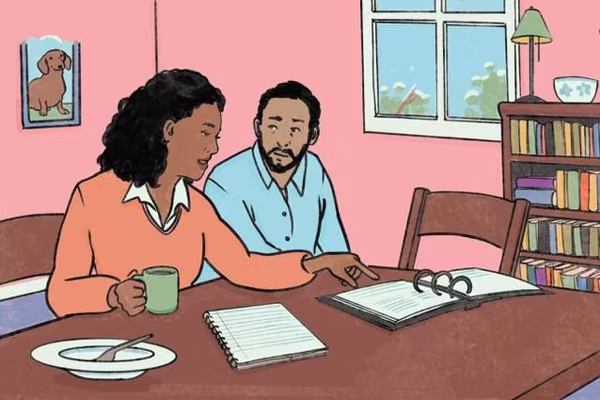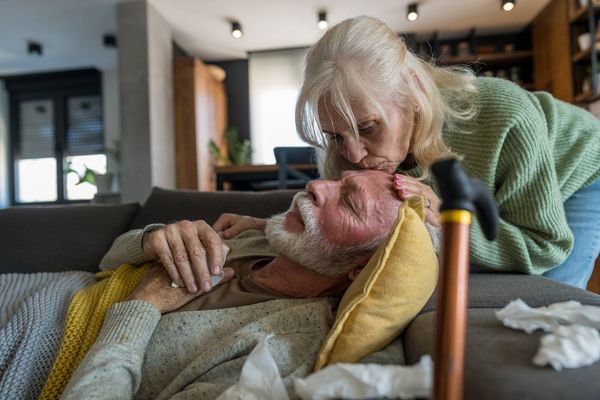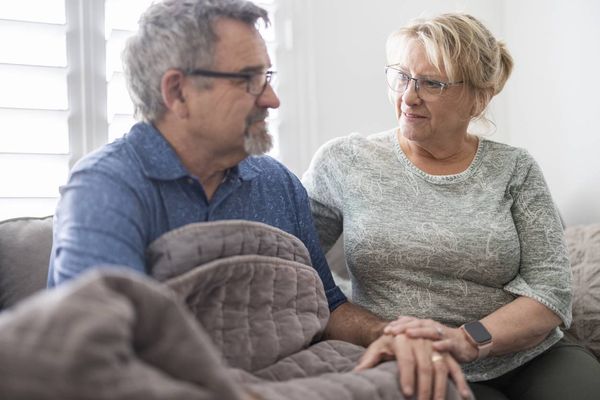As told to Jacquelyne Froeber
November is National Family Caregivers Month.
My mom was my biggest fan. After I published my first novel, she came to all my author talks. At the end of each session, I’d ask if anyone in the crowd had questions, and she was always the first one to raise her hand. “I’m Vicki, your mother,” she’d say standing up. Everyone would laugh. “My daughter is a brilliant writer — this is a brilliant book.”
People thought my mom was adorable, but I was so embarrassed. I said, “Mom, you cannot announce to everyone how great your daughter is and then ask me questions at every reading.” She said OK and then ignored me. That was just who my mom was — she radiated positivity and joy, and she was passionate about supporting women — including, and most especially, her daughter.
After my father passed away in 2014, my mom moved to Los Angeles. She lived in a 55 and older community about five minutes from my house. Although she was independent, she was living with a brain tumor. It wasn’t cancerous but it limited her vision in one eye and caused balance issues. Still, my mom was able to do mostly everything on her own: go to the supermarket, get her nails done, take a memoir writing class.
Then the fender bender happened. My primary care doctor, who was also my mom’s doctor, told us she didn’t think mom should drive anymore — her eyesight was too bad.
I knew giving up her car was a big deal for her — driving was her independence. But I quickly realized it was a big change for all of us.
I became mom’s primary caregiver after that, but I still had two of my three kids at home that I was driving to doctor's appointments, school, soccer practice, martial arts and all the other places they needed to be.
I started to feel like I was drowning in demands. On an average day, I would go pick up mom for an appointment or to go to the grocery store and my phone would buzz the entire time.
“I need the reservation number for the plane tickets.” — Daughter
“I need a ride home after practice.” — Son
“I need money for lunch.” — Youngest
“Did you respond to the text about the reservation?” — Husband
“I need a walk.” — Family dog
OK, our dog never made demands over text, but I still felt guilty. I was always running around trying to balance the needs of my kids and my mom. There were also the emotional needs and teenage angst that came with everyday life. And my mom had emotional needs, too. I tried to stay present in the moment when I was with her, but I was often distracted. I felt like I was falling behind as a daughter, mom and wife.
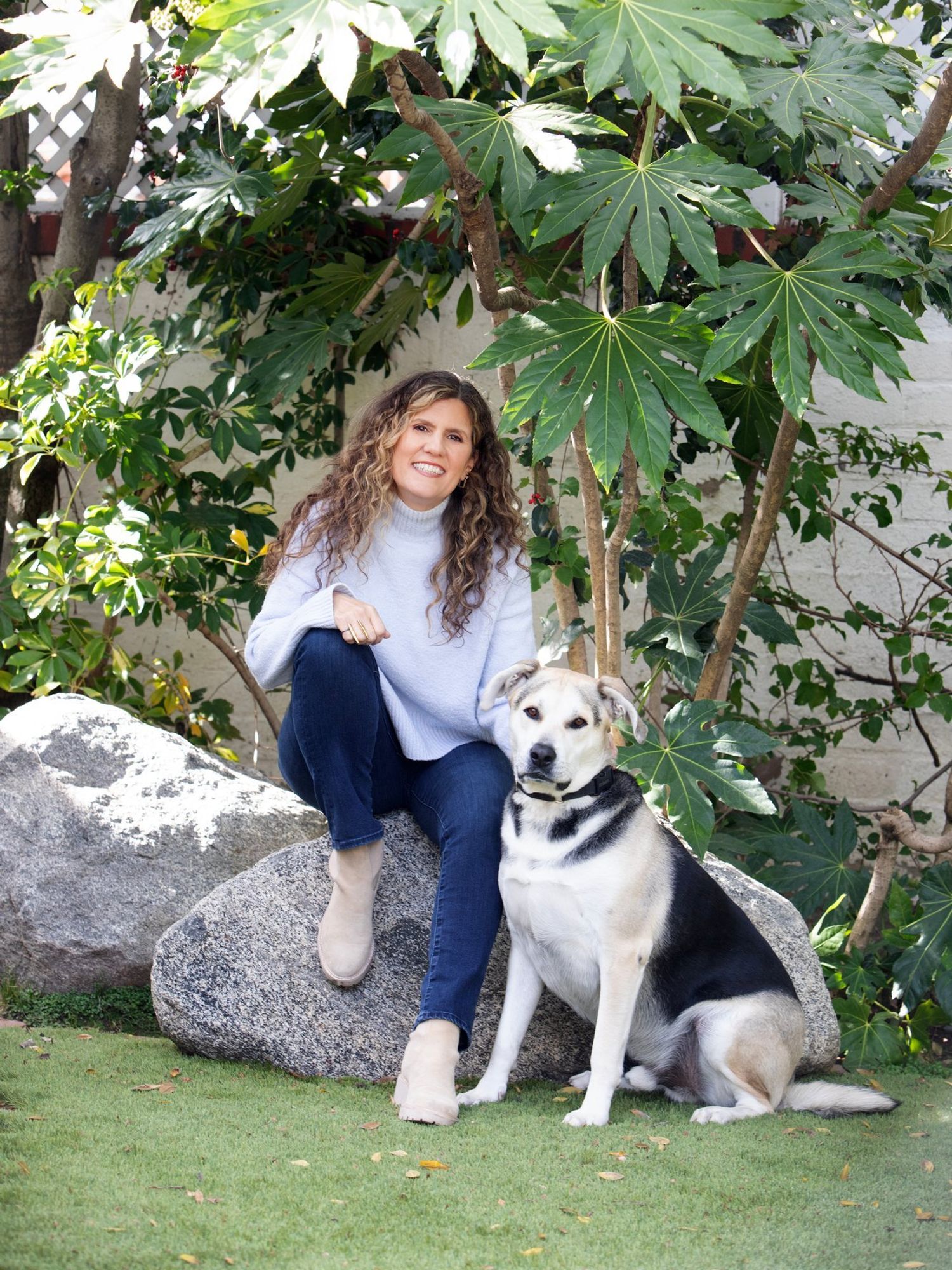
Some days, I wanted to pull the car over and cry. I was so overwhelmed physically and mentally. But frankly, I didn’t have time.
In October 2019, things got worse. My mom fell and hit her eye — the good one. The injury took her eyesight and then she was almost completely blind. She needed in-home care and therapy, and it was up to me to find the best care team to help with all her new challenges.
Then Covid started and everything went dark. The in-home care plans stopped. Everything was closed and planned doctor’s visits and therapy just went away.
We were terrified. Everyone was terrified. To make matters worse, our home was not safe for my mom. My husband’s a physician so he was in and out of the hospital every day during the pandemic. We were terrified we were going to pass the virus to her. And I couldn’t go to her place. The elder community was very strict because they were trying to protect their vulnerable residents.
So, weeks went by before I was able to see my mom in person. When I was finally able to visit I was shocked by how downhill she’d gone in such a short time. She was confused and disoriented. The isolation and loneliness and lack of services had taken an irreversible toll on her. We did everything we could to lift her spirits and health overall, but Mom died not long after that.
The guilt was insurmountable. As her caregiver, I felt responsible for her. The blame and regret played on a loop in my brain: I made the wrong choices … I should have made different choices … if only I’d known my mom was at the end of her life … but how could I have known … I could have moved her in with me … but I was trying to protect her … but did I protect her? These questions plagued me.
The loss and the grief of losing a parent is something many people experience. But grief is a different shade when you’re their primary caregiver. There’s an extra layer of guilt and remorse — even though there’s nothing more you could have done. Because it’s not just grief, there’s a sense of responsibility and that’s very hard to handle.
Mentally, I was in a very dark place for a long time. I’d spent so much time worrying about my mom when she was alone and now that she was gone, I was worried about how she died.
About a year later, when the world opened back up, two of my three kids were off at school. My youngest started driving everywhere and didn’t need me like before the pandemic. Suddenly I was this rudderless person.
I had these two starring roles in my life — mother and daughter — which may have been difficult at times but they gave me a sense of purpose. So, who was I without my children and my mother?
I needed help moving forward, so I started seeing a grief therapist. She changed my life. She helped me see that I’d been a fierce advocate for my loved ones all my life and there was nothing I could’ve done to change what happened to my mom.
In addition to therapy, I began a regular writing practice where I shared my grief and loss each week on my blog. It was the best way for me to connect to myself and share my grief journey with others. After a year of writing, I went back and reread what I’d written. It remains a powerful map of what I've been through and how far I’ve come.
It’s been four years since my mom died. Since that time, I’ve moved from feeling her absence to feeling her presence in everything I do. I called upon her many times for help when I was writing my second book, “Heart. Soul. Pen.: Find Your Voice on the Page and in Your Life.” I still look for her hand in the crowd during author talks, but, even though I don’t see it, I feel it. I know she’s still right here with me.
Have a Real Women, Real Stories of your own you want to share? Let us know.
Our Real Women, Real Stories are the authentic experiences of real-life women. The views, opinions and experiences shared in these stories are not endorsed by HealthyWomen and do not necessarily reflect the official policy or position of HealthyWomen.
- Don’t Journey Alone: How to Find Caregiving Help for a Loved One with Dementia ›
- Painting Gave Me a Precious World All My Own While Caregiving for My Husband with Alzheimer’s Disease ›
- How to Find the Right Caregiver for Your Parent ›
- Are You a Caregiver Neglecting Yourself? You're Not Alone ›
- How Becoming My Husband’s Caregiver in My 30s Changed My Life ›
- How to Cope With the World When You're Mourning Covid Losses - HealthyWomen ›
- Physical symptoms of grief - HealthyWomen ›
- El cáncer de próstata de mi esposo es terminal, pero eso no le ha puesto fin a nuestro amor - HealthyWomen ›
- Caring for a Partner with Prostate Cancer - HealthyWomen ›

